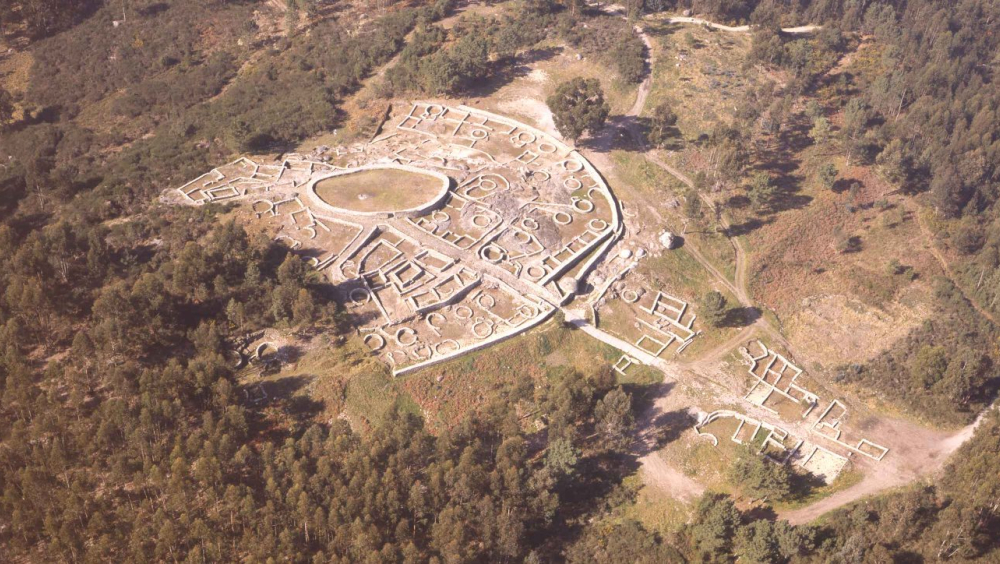2000 anos de memórias entre Galaicos, romanos e portugueses no noroeste da Península Ibérica
About two thousand years ago, Roman civilization assumed occupation of the European peninsular northwest, thus delimiting the imperial borders in the Atlantic West, where it finds native cultures disseminated in a vast territory located in the confines of the Galecia. Two thousand years after the beginning of this truly intercultural experience between two diametrically opposed societies, we celebrate this fact, which has constituted a very valuable human heritage mutual in today's Europe.
In the 100th anniversary of the beginning of scientific research in the Castro de Monte Mozinho (MOZ), studied in a context of great interest in the knowledge of the Proto-Historical and Roman culture. This site well illustrates a village with a strong expression in the landscape, by scale and architecture, where the Roman civilization acted to gather dispersed populations from a perspective of peaceful domination. After the definitive abandonment as a settlement during the 5th century AD, Monte Mozinho falls into long forgetfulness until it is rediscovered and investigated from the beginning of the XXth century, and later with the collaboration of international researchers, and invaluable support of local populations and students.
This impetus require new approaches and interdisciplinary readings, in an attempt to adapt a ruin to the real needs of our contemporary - more demanding and avid of knowledge. It is therefore urgent return to MOZ and celebrate the multiculturalism, the peaceful living of different peoples, as happened here from the first century a.C., and reinforce the sense of belonging of the monument by the local community, its first defender, their involvement, as well as researchers and students. Equally priority will be the recovery of the primitive nature of its 20 ha, and the record of the experiences of the many who passed through it, returning the place to the collective memory of the community, as a space of identity and (re) intergenerational meeting.
Starting from a monument of cultural value recognized by its unique characteristics in the context of the Proto-Historical culture of the North-West, we will enhance the values of defense, protection and recognition of this site as an element of the European heritage, so that the scientific and local communities identify as an integral part of the promotion of human rights, including access to culture, democracy and legality.
